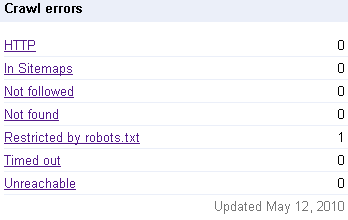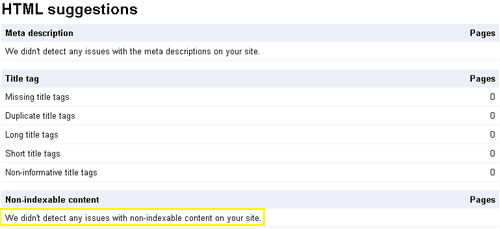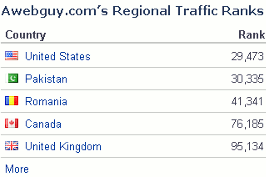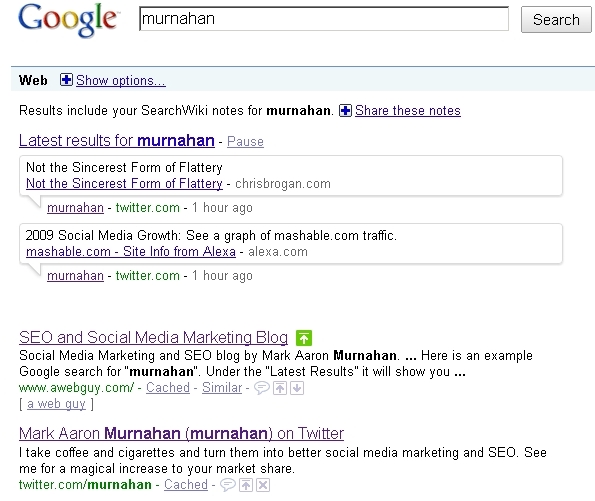
I know it is not only me who gets the offers in my email each day offering guaranteed top ten results at Google. I manage a lot of websites, and nearly each of them will receive offers for guaranteed SEO results. I even get these offers for sites that I intentionally exclude from search engine indexing, which makes it pretty clear these guys don’t know much about targeting their market … they just have an email address. They claim to guarantee top ten results, but top ten for what search? I guess that would be pretty easy for keyword phrases like “unicorn hunting expedition”, but what about the stuff that really pays off? What about the things that create more business for the client, and not just a buck for the SEO?
SEO Guarantees Should Be Objective
A guarantee without an objective measurement, that is reasonably guaranteed to be achievable, and is guaranteed to be of value, is no guarantee at all. However, that is the type of guarantee people get suckered into all the time with SEO. It is a good reminder that it is really easy for people without integrity to make false claims. It is a constant challenge for me to try and understand why people so often believe lies more than they believe the truth about Internet marketing. They only see the bold print with great claims, but their eyes glaze over when it comes to the fine print or when common sense is necessary. You know, like the common sense that kicks in and tells you “it sounds too good to be true.”
I want to share seven legitimate SEO guarantees that are based on objective third party measurements that are very achievable by any SEO worth the water their body is made of. These are guarantees that actually have meaning, because they are measurable and not subject to individual interpretation, and they place specific responsibility on the SEO.
SEO Guarantee Number One: Website SEO Readiness
Measuring website readiness for SEO can be performed in many ways. It seems that a lot of non-SEO people do not realize how objective this can be. There are a lot of very specific deal-breakers that can preclude a website from high search ranking, and they can be measured very objectively. I will give you just a couple of examples.
Website Grader by HubSpot: HubSpot is a company that provides tools to help companies measure and improve their website and social media reach. As a side note, it is actually kind of funny that if you search Google for HubSpot SEO or HubSpot social media, or a bunch of other terms related to their services, you can find my thorn in their side. I have given HubSpot a hard time in the past, but they really do have some good products to measure a website’s preparedness for SEO.
Website Grader analyzes a website based on preparedness for SEO mixed with its traffic level. A legitimate SEO guarantee based on a set ranking on Website Grader is something achievable to the SEO, because it will provide details of what to improve, and it is objective data from a third party. If the SEO guarantees a HubSpot Website Grader score of 98 within 60 days, it is something that is both measurable and readily achievable to even an average SEO. Try it for yourself and see where your site ranks. If you want to improve it to 98+ within 60 days, your SEO should be able to make a legitimate guarantee. This particular site is presently ranked at 99.7, and it did not require any rocket surgery. Click the badge to see a sample report for my blog.
Google Webmaster Tools: I have previously pointed out that Google wants to index your website. Providing relevant listings for searches has everything to do with how Google makes money. They provide a lot of help for making websites more search engine ready, because it helps them meet their business objectives.
Google Webmaster Tools provides objective information to help website owners measure and maintain the SEO preparedness of their website. This provides a measurement that any SEO should be able to guarantee, legitimately. I will include a couple screenshots to show SEO standards that any SEO should be able to achieve, maintain, and guarantee.


The appropriate SEO guarantee in the instance of Google Webmaster Tools is clear and very simple to track. It is also very achievable to any SEO that has been in the business more than three weeks.
SEO Guarantee Number Two: Traffic Measurement
There are a lot of ways to measure website traffic. There are many different value metrics such as number of unique visitors, time on page, bounce rate, traffic sources (keywords, referring websites, etcetera), new vs. returning website visitors, and more. If a guarantee is to count, it must be well defined and based on historical data compared to new data.
A legitimate guarantee that the SEO can make in traffic measurement could include ongoing work in specific increments until certain goals have been met. For example, if the goal was to increase search traffic by 300 percent and keep the time on page above four minutes, the SEO will provide (and log) no less than ten hours per week in services until that goal is reached. That would be a reasonable guarantee. If the SEO wants to get to work on other projects, he or she will probably work pretty hard to be sure the goal is met without delay.
SEO Guarantee Number Three: Alexa, Quantcast, Etc.
 Ranking at Alexa, Quantcast, Nielsen, and etcetera is another form of traffic measurement that is more important to websites focused on selling advertising than their own products or services. These rankings have often been contentious, and many people will argue their validity due to possibilities for falsified or fraudulent results. However, it is hard to argue that the SEO has not done a good job if a website’s ranking in two or more of these services has made significant improvements, especially if they each produce results that are in agreement.
Ranking at Alexa, Quantcast, Nielsen, and etcetera is another form of traffic measurement that is more important to websites focused on selling advertising than their own products or services. These rankings have often been contentious, and many people will argue their validity due to possibilities for falsified or fraudulent results. However, it is hard to argue that the SEO has not done a good job if a website’s ranking in two or more of these services has made significant improvements, especially if they each produce results that are in agreement.
If the SEO chooses to guarantee increases in these rankings, it can be beneficial to measure more than one of them simultaneously. A guarantee of ranking in the top “X” sites on each of these services could mean the SEO will provide the amount of increase at a specific cost and continually log efforts until the goals are reached. If the SEO priced it too low, their guarantee is to keep providing work, and proof of that work, until your objective is reached. An incentive to the SEO for higher than promised results is often an additional guarantee of another sort. It guarantees the SEO will be excited to work on your project.
SEO Guarantee Number Four: Increased Incoming Links
Incoming links pointing to your website is the most desirable and effective way to achieve higher search engine rankings. Because of its importance, it is also one of the most abused areas of SEO. The most common scams I see are from crooked SEO selling useless links. Many SEO will promise you a squillion new incoming links to your website, but what they do not tell you is they are largely links from domains that are penalized by all major search engines for being “link farms” and can actually do more harm than good. It is why this kind of search engine optimizer will generally have their own website penalized and cannot produce a single example of a website where they have created a large number of useful incoming links.
If any SEO guarantees to produce “X” number of incoming links, you should see it as a big red flag. On the other hand, if they guarantee a given MozRank increase based on high quality links, it had better come with some pretty serious content production. That means producing the kind of website content that will attract people to share your article in social media, reference it in their blog, or submit it to Digg, Delicious, StumbleUpon, and others. Any SEO promising links simply by adding your web address to blog comments, forum posts, and link farms is likely to hurt your business in other ways, too. If you want to know how to create incoming links, read this article titled “SEO Backlinks: Why Most SEO Fail at Link Building“.
Links are not created equally, and some are not only worthless but even harmful. Any SEO guarantee including link building should be based on measurements of link value and not just link volume. A reputable measure of link value may be found using SEOmoz Linkscape or Open Site Explorer (example report). Of course, there is also Google PageRank, but a good SEO knows that PageRank is not a good measurement tool, and it is old and unreliable data.
A reasonable guarantee for the SEO to offer is to produce and promote useful content on your website and continue until it reaches your set goal. This is another example of an SEO guarantee that places responsibility on the SEO to work for their money.
SEO Guarantee Number Five: Increased Search Phrases
The number of unique search phrases that bring you traffic can be a useful measure of overall performance. I do not mean measuring the number of search phrases where you appear in results, but rather the number of search phrases that actually brought visitors to your website. It can indicate that your site is being more thoroughly indexed, and that its overall search engine health is improving. If your site was visited as a result of only 500 unique search terms in one month but then visited as a result of 5,000 search terms the next month and 10,000 the following month, it is a pretty good indicator that things are going well.
This is a very measurable metric that has meaning, but for the purpose of a solid guarantee, it should be measured alongside the number of unique visitors to your website. You know, for the skeptic to be sure the SEO is not running a script to falsify the results.
A good SEO guarantee based on the increase in search phrases could be something such as additional increments of services being logged by the SEO until “X” percent increase in unique search phrases and “Y” percent associated increase in unique visitors.
SEO Guarantee Number Six: Solid Marketing Plan
This is a preemptive guarantee that is a hard one for a lot of people to really grasp as a truly measurable guarantee … but it is! Many people will look at SEO as a commodity that is produced the same by every search engine optimizer, and is just a set of basic tasks we perform the same for each client. This is not how it actually works, but it is why I receive many visitors searching for SEO hourly rates (google it for yourself).
I recently wrote about the relationship of marketing cost vs. marketing value, and the truth is that if you want all the pieces to fit just right, you should plan to make a sizable investment. This is because a good SEO will be making a sizable investment of time and knowledge to help you achieve your business objectives. As you can perhaps see here and throughout my blog, there are a lot of tasks to perform in reaching good search engine results. The specific work of my industry is not the same for any two companies, which is why a properly outlined plan can be the greatest SEO guarantee of all.
The lack of a solid marketing plan is a guarantee to fail. If the SEO provides a well-formed contract outlining the discovery process, proposed execution of tasks, and reporting of outcomes, it is likely the best guarantee that you will get what you pay for. When it is carefully planned out, high quality SEO can become the greatest asset to a company, topping the chart for online success tools. It can take a company to a whole new level and send their profitability and market share through the roof.
SEO Guarantee Number Seven: Inaction Guarantee
Number seven is the SEO guarantee grandfather of them all. I guarantee that there are a lot of websites returned in a search for what you offer. If you do not take action to optimize your position, or you lack the proper actions, you will miss a lot of potential business. That is a guarantee worth betting on. If the SEO has a strong track record and will make specific guarantees like the ones suggested here, you will risk a lot more lost money by inaction than if the SEO took your money and split for a country without extradition.

